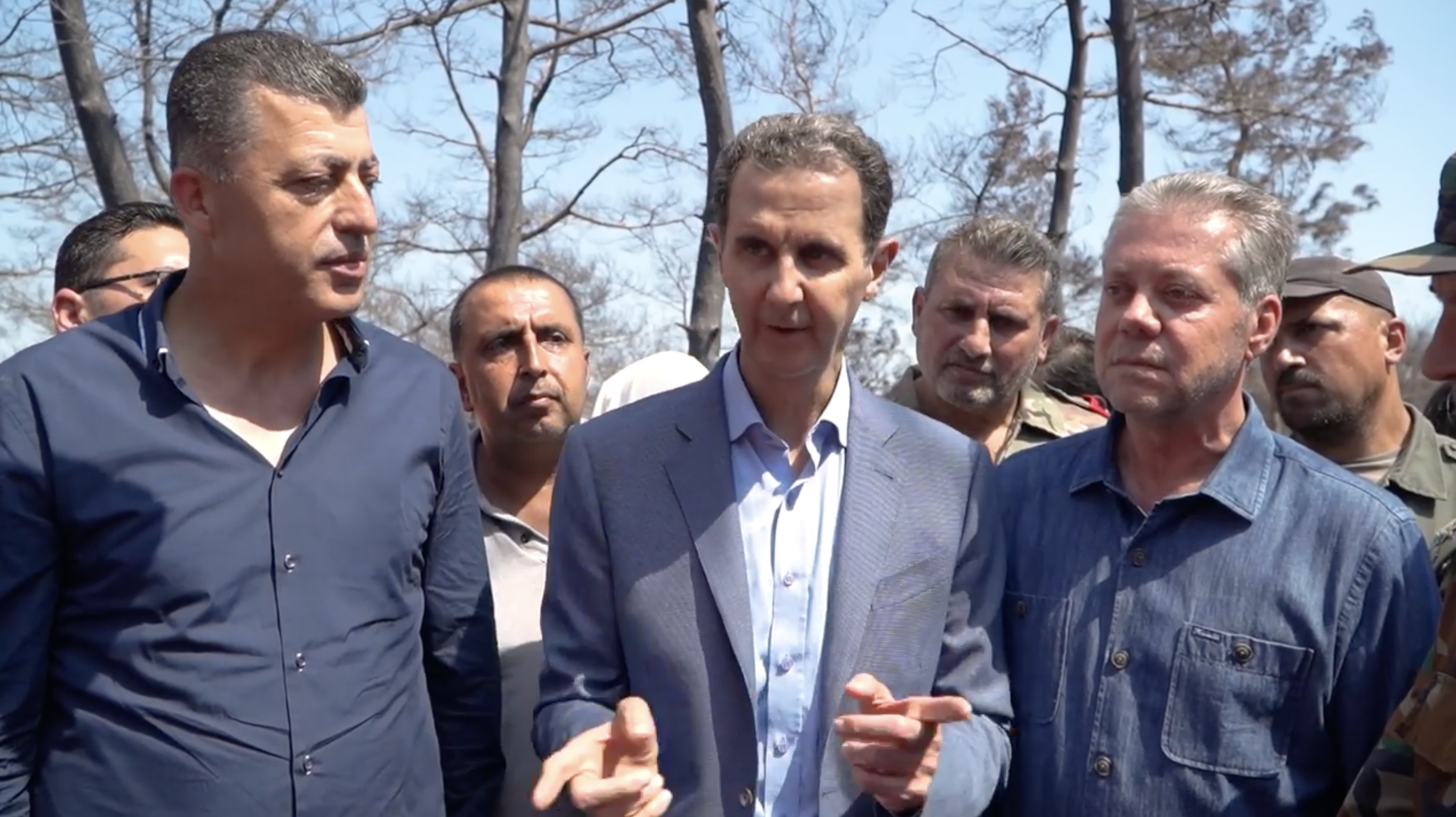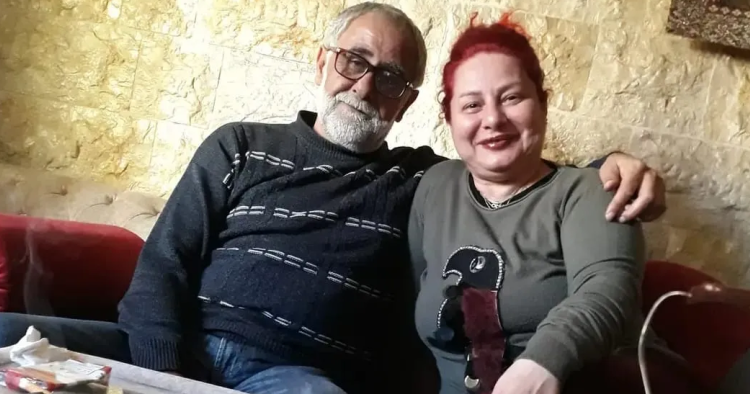Introduction
Recently, a notable trend has emerged among Alawites in Syria's Assad regime-held areas, including those from powerful families. Writers, journalists, and rank-and-file Alawites have taken to social media platforms to express their deep frustration with the regime's economic policies and the centralized nature of the dictatorship under President Bashar al-Assad, as well as his wife Asma al-Assad’s outsized influence and corruption linked to her secretive “economic council.”
The case of Lama Abbas, a loyalist writer from the city of Jableh in Lattakia Province, illustrates this intriguing development. Abbas’ recent livestreams and posts on Facebook criticizing the regime's decision-making and the obsequious bowing of its Alawite base raised eyebrows and called into question the regime's narrative of winning the war.
Lama Abbas' bold Facebook rant
In a major departure from her loyalist discourse, Abbas took to Facebook in late July to voice grievances about the disastrous economic policies implemented by the Assad regime. She criticized a recent "extraordinary session of parliament," during which the prime minister absolved himself of responsibility, claiming the economic problems were beyond his control. The lament highlighted not only the issues with economic mismanagement but also the highly centralized decision-making structure and Assad’s total control of power. In her impassioned rant, Abbas went on to further criticize the citizens in regime-held Syria, likening them to sheep that follow the regime blindly and obediently. She argued that this passive attitude allows the regime to operate without accountability, enabling it to do as it pleases without fear of repercussions. Moreover, in a thinly-veiled reference to Iran’s demographic change scheme in Syria —Tehran's efforts to buy up land and systematically repopulate areas from which Sunnis have been displaced with Shi’a Muslims from Lebanon, Iraq, Afghanistan, and Iran— Abbas claimed in two Facebook posts that the same actors were behind the recent catastrophic fires in Old Damascus and the wildfires in the coastal region, and criticized the regime for failing to extinguish the flames.
Security apparatus response
Shortly after her Facebook posts, the regime's security apparatus attempted to detain Abbas in her home. Given her powerful and well-connected Alawite familial background, she and her family confidently rebuffed the security forces and demanded a proper warrant for any potential arrest, broadcasting the whole episode live. This incident sparked further controversy and prompted debates about the regime's priorities in allocating resources.
Additional commentators supporting Abbas
Bashar Barhoom, a pro-Assad influencer based in the Alawite heartland, criticized the raid, describing it as an act by the "occupiers" and expressing disapproval that security forces are not directed against foreign enemies like Israel. He also mocked the lack of an arrest warrant for the writer, implying that such incidents were routine in the Ba'athist state. Barhoom condemned the government’s corruption, stating that even in the security raids, officials use one car while claiming fuel allowances for four cars.
Ahmad Ibrahim Ismael, another Alawite influencer, also took to social media to lambast the “extraordinary” parliamentary session. Drawing from his experience as a former employee at the Military Housing Establishment, he revealed that seats in parliament are sold, resulting in MPs who are handpicked by the regime and thus never stand up to it. He referred to the whole process as a "farce" and emphasized that Syria lacks independent institutions. Ismael concluded by asserting that the motto of MPs is "long live the Emperor" and that decisions are solely made by a centralized authority referred to as "the Superman." When security forces attempted to detain Abbas for her statements, Ismael openly endorsed her views, stating, “It’s high time ‘the General’ [Assad] understood that we want to live. […] You can’t arrest all Syrians.”
Dr. Ammar Yousef, a pro-Assad economist living in a regime-held area, went on a live radio broadcast to say that Caesar sanctions are just a pretext for policy failures: “These sanctions do not include food, medicine, cooking gas, or anything related to the livelihood of citizens.”
Bassam Hussam al-Deen, the commander of “Usoud al-Jabal,” an Alawite militia, went on his personal Facebook page to decry that there is “no justice” in regime-held areas because a corrupt judge did not rule justly in a manslaughter case. Hussam al-Deen promised to take justice into his own hands moving forward.
Kenan Wakkaf, an Alawite Syrian journalist from Tartous who fled Syria last year following a nighttime raid on his home by the intelligence services after he criticized the regime, also belittled the parliamentary session and the policies of Asma al-Assad’s corrupt economic council. He went online to blame Assad and Asma for the rapid collapse of the Syrian pound and said that current policies mean that the Syrians who “did not die in war will die from starvation.”
Rami Makhlouf, Bashar al-Assad's maternal cousin known for his vast wealth and holdings in nearly every industry in Syria, posted a prediction on social media that the Syrian pound will become so worthless, it will be measured by the kilogram.
Waseem al-Assad reprimands Alawites for discontent
Some may be tempted to dismiss these recent reactions as isolated or sporadic, but the trend has been disconcerting enough to merit a response on social media by Waseem al-Assad, a Western-sanctioned Syrian militia leader, drug lord, and distant cousin of Bashar al-Assad. Waseem al-Assad criticized Bashar al-Assad's traditional supporters for their discontent over the worsening economic conditions, reminding Alawites of the privileges they enjoy today thanks to the regime and the Ba’ath Party. Speaking from a luxury hotel in Damascus, he dismissed their criticisms, telling them to “till the land” instead of engaging in protests and airing grievances on social media.

Assad: “We’re at war. Now is not the time to cry.”
Growing Alawite criticism also seems to have prompted Assad to travel on Aug. 3 to Lattakia, the site of the wildfires, to calm mounting anger against his regime. Addressing the outcry on social media indirectly, he reminded his contrived audience that “this is not the time to whine, even if there’s a legitimate reason. We’re at war. In times of war, one must fight, not cry.” Assad’s wife, Asma, also traveled to Tartous, where she visited a clothing factory. In a staged photo op, she told the predominantly Alawite factory workers that though there might be widespread suffering, the only “patriotic” solution is to double down on “dedication,” “hard work,” and “passion.”

Conclusion
In conclusion, while the Assad regime may attempt to project an image of strength and victory, the underlying reality reveals a government grappling with internal challenges, severe economic hardships, and dissent even among its historically strongest base. Trips by the president and the first lady to the Alawite heartland and emollient words meant to nip dissent in the bud can only work for so long. Unless Assad can offer his base a way out of a morass of his own making, the phenomenon is likely to continue to grow, seriously imperiling a key pillar of his rule.
Mohammed Alaa Ghanem is Syrian academic, human rights activist, pro-democracy campaigner, and a former editor at the digital platform that issued the original call for peaceful protests in Syria. He currently serves as the policy chief for the American Coalition for Syria, an umbrella group of nine specialized, multi-faith organizations. His writings have appeared in The New York Times and The Washington Post among many others. A native of Damascus, he is a former assistant professor at the University of Damascus.
Main photo from the subjects' social media accounts.
The Middle East Institute (MEI) is an independent, non-partisan, non-for-profit, educational organization. It does not engage in advocacy and its scholars’ opinions are their own. MEI welcomes financial donations, but retains sole editorial control over its work and its publications reflect only the authors’ views. For a listing of MEI donors, please click here.













